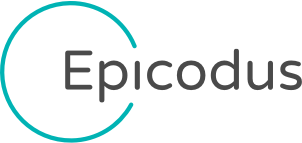Helping our students find great jobs is a huge part of what we do at Epicodus. In fact, it’s our mission. Over the years, we’ve accrued quite a bit of job-hunting knowledge to help set our students apart. In the next few weeks, we’ll be sharing our best tips and tricks for junior developers who are looking for their first jobs.
Introduction
Interviewing skills are an important part of a job search. If you're a student at Epicodus, you'll have the opportunity to participate in a mock interview with a member of our staff, and practice answering some typical questions. The more seriously you take it, the more you can learn as you move forward. There are some basics to consider as you prepare for any interview.
- Dress appropriately for an interview.
- Conduct yourself in a professional manner
- Have relevant and appropriate answers for questions.
- Have relevant questions for your interviewer.
- Stay relaxed, and enjoy the opportunity to teach someone about yourself, and learn about a company.
Questions
During our mock interviews, we use questions that cover a few areas. These are by no means comprehensive, and some interviews may focus on one area or another, but as a general rule these are present in one form or another in just about every interview.
Personal Questions
These are "get to know you" questions about yourself, and about your previous education, experience and motivations.
- Tell me about yourself. What's your background?
- Why did you get into programming?
- What made you pick code school?
- Where do you see yourself in the future?
Your goal should be to explain the ways life has been preparing you to become a developer. General biographical information should be kept to a minimum. If you have prior programming experience you can talk about any coding you did as a kid or in school. If you're newer to coding you can emphasize parts of jobs where you worked with computers or spreadsheets, and tell about any computer skills you developed on your own.
Either way, make sure to emphasize the skills that have served you well as a student and developer, for example problem solving skills, critical thinking, organizational skills and so on. You want to show the interviewer you're passionate by illustrating how these skills have come up in different ways throughout your life.
Programming Questions
These are discussion questions which give you a chance to showcase your knowledge about programming tools and concepts. This is different from a technical question.
- What problems do you see with current web development tools?
- What do you like about current web development trends?
- How do you stay active in the tech community?
- What are your strategies to approach a problem that is initially beyond your capabilities?
- What frameworks have you used?
- What testing tools have you used?
Workplace Questions
The interviewer will want to know about your motivations and experiences in the workplace. These questions are a good chance to highlight your communication, teamwork, and work ethic.
- What kind of culture do you want in your workplace?
- What are some of the challenges you faced while pairing?
- Give an example of how you resolved a disagreement with your pair.
- How would you communicate with team members that are not developers?
- Tell me about the intern project you worked on.
- Why do you want to work here?
- Why should we hire you?
Be well prepared for these interview questions and know how to answer them. These are generally less about your technical skill set and more about your work ethic and ability to collaborate with others. The general format they’re looking for is called S.T.A.R. It means:
- Situation: (In my job at x company)
- Task: (I had to accomplish y thing)
- Action: (To that end I did z thing)
- Result: (This is what ended up happening or what I learned)
Open Discussion
Just about every interviewer will close out by asking if you have any questions. You should have at least a couple prepared ahead of time. The most effective ones show an interest in the company and in being a positive addition to it. Questions about the team and culture of the company and where you would fit in are also really good. It's important to have some questions prepared that will help you decide if this is a good fit for you. Make sure to ask about things that haven't been covered in previous conversation.
- Can you give me an example of a recent challenge or project you've been faced with?
- What are the priorities for this position evaluated?
- If I am offered the position, what kinds of opportunities will I have to work with veteran developers?
- What are the greatest challenges for those in this role?
- What opportunities will I have to learn new skills/continue my education?

